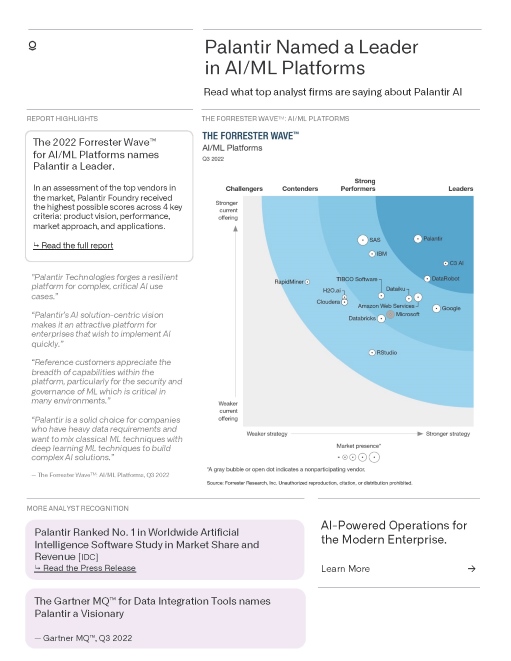FTC Probe Into OpenAI: A Deep Dive Into The ChatGPT Investigation

Table of Contents
The Nature of the FTC's Investigation
The FTC, the United States' consumer protection agency, focuses on preventing unfair business practices and ensuring consumer protection. This investigation into OpenAI stems from growing concerns about the potential harms associated with the widespread adoption of large language models (LLMs) like ChatGPT. The FTC's scrutiny centers on several key areas:
Data Privacy Concerns
OpenAI's data collection practices have come under intense scrutiny. The training of ChatGPT involves processing massive datasets, raising questions about the privacy of personal information included within these datasets. Specifically:
- Use of personal data for training models: ChatGPT's training data likely includes vast amounts of personal information scraped from the internet, potentially violating user privacy expectations.
- Lack of transparency in data handling: OpenAI's data handling practices haven't always been transparent, making it difficult for users to understand how their data is collected, used, and protected.
- Potential for misuse of personal information: The possibility of unauthorized access or misuse of personal data used in training ChatGPT is a significant concern. The FTC is likely investigating OpenAI's safeguards against such breaches.
Algorithmic Bias and Discrimination
Another major concern is the potential for algorithmic bias within ChatGPT. Like many AI systems, ChatGPT is trained on existing data, which may reflect societal biases. This can lead to biased outputs:
- Examples of biased outputs from ChatGPT: Reports of ChatGPT generating responses that perpetuate stereotypes based on race, gender, or other sensitive attributes have surfaced.
- The challenge of mitigating bias in large language models: Removing bias from LLMs is a complex technical challenge. The FTC's investigation likely examines OpenAI's efforts (or lack thereof) to address this issue.
- Potential for discriminatory outcomes based on algorithm bias: Biased outputs can lead to discriminatory outcomes in various applications, raising serious ethical and legal concerns.
Misinformation and the Spread of Falsehoods
ChatGPT's ability to generate human-quality text raises concerns about the spread of misinformation and falsehoods. The ease of creating convincing but inaccurate content is a major problem:
- The ease of generating convincing but inaccurate content: Malicious actors could exploit ChatGPT to generate fake news, propaganda, or other misleading content at scale.
- The potential for malicious use of AI-generated content: The technology's potential for misuse in disinformation campaigns is a key area of the FTC's investigation.
- The difficulty in detecting AI-generated misinformation: Identifying AI-generated content can be challenging, making it difficult to combat its spread.
Potential Outcomes of the FTC Investigation
The FTC investigation could have significant consequences for OpenAI and the broader AI industry. Potential outcomes include:
- Financial penalties and legal repercussions: OpenAI could face substantial fines and legal action if found to have violated consumer protection laws.
- Increased scrutiny of AI development practices: The investigation could lead to increased scrutiny of AI development practices across the industry, prompting greater transparency and accountability.
- Potential for new regulations impacting AI companies: The FTC's findings could influence the development of new regulations governing AI development and deployment. This could include data privacy regulations specifically tailored to AI systems.
The Broader Context: AI Regulation and Ethical Considerations
The FTC probe into OpenAI is not an isolated event. It highlights a growing global debate surrounding AI regulation and ethical considerations.
- The need for transparency and accountability in AI systems: Greater transparency in how AI systems are developed and deployed is crucial for building trust and ensuring accountability.
- The importance of considering ethical implications in AI design: Ethical considerations should be integrated into the design and development process from the outset, not as an afterthought.
- The role of government regulation in promoting responsible AI: Government regulation can play a critical role in fostering responsible AI development and preventing harm.
Conclusion
The FTC investigation into OpenAI and ChatGPT underscores critical concerns regarding data privacy, algorithmic bias, and the potential for misuse of powerful AI technologies. The potential outcomes of this probe will significantly impact OpenAI's future and shape the landscape of AI regulation. Staying informed about the ongoing FTC probe into OpenAI and its implications for ChatGPT and the wider AI landscape is crucial. Understanding these developments is essential for navigating the evolving ethical and legal landscape of artificial intelligence.

Featured Posts
-
 Romantiki Komenti Materialists Deite To Treiler Me Toys Ntakota Tzonson Pedro Paskal Kai Kris Evans
May 10, 2025
Romantiki Komenti Materialists Deite To Treiler Me Toys Ntakota Tzonson Pedro Paskal Kai Kris Evans
May 10, 2025 -
 How Palantirs Nato Partnership Will Transform Public Sector Ai
May 10, 2025
How Palantirs Nato Partnership Will Transform Public Sector Ai
May 10, 2025 -
 The Epstein Client List Pam Bondis Involvement And Potential Fallout
May 10, 2025
The Epstein Client List Pam Bondis Involvement And Potential Fallout
May 10, 2025 -
 Dijon Concertation Achevee Pour La 3e Ligne De Tram
May 10, 2025
Dijon Concertation Achevee Pour La 3e Ligne De Tram
May 10, 2025 -
 Sensex Surges 1400 Points Nifty Above 23800 Top 5 Reasons For Todays Market Rally
May 10, 2025
Sensex Surges 1400 Points Nifty Above 23800 Top 5 Reasons For Todays Market Rally
May 10, 2025
